News
-
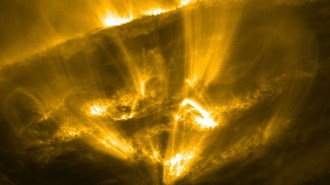 Astronomy
AstronomyCoronal rain has been seen splashing on the sun
New images of the solar corona, taken by the Solar Orbiter probe, reveal bright fireball effects and upwelling induced by falling plasma droplets.
-
 Earth
EarthWildfires aren’t going away. Here’s how smoke can affect your health
How does repeat exposure to wildfire smoke affect our health? Three experts weigh in on the massive air pollution fueled by Canada’s ongoing fires.
By Meghan Rosen -
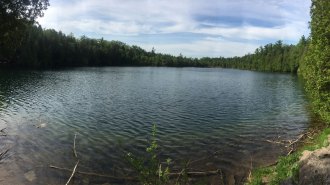 Climate
ClimateCanada’s Crawford Lake could mark the beginning of the Anthropocene
The mud of a Canadian lake holds an extremely precise record of humans’ influence on Earth. But the Anthropocene isn’t an official geologic epoch yet.
-
 Materials Science
Materials ScienceThis ‘thermal cloak’ keeps spaces from getting either too hot or cold
A new thermal fabric prototype could help keep cars, buildings and other spaces a comfortable temperature during heat waves while reducing CO₂ emissions.
By Skyler Ware -
 Humans
HumansLauren Schroeder looks beyond natural selection to rethink human evolution
Paleoanthropologists studying the fossil record have long focused on natural selection, but other processes play a big role too.
By Anna Gibbs -
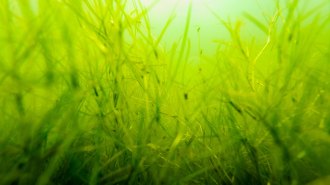 Ecosystems
EcosystemsThis seagrass is taking over the Chesapeake Bay. That’s good and bad news
Higher water temperatures are wiping out eelgrass in the Chesapeake Bay and weedy widgeongrass is expanding. Here’s why that seagrass change matters.
By John Carey -
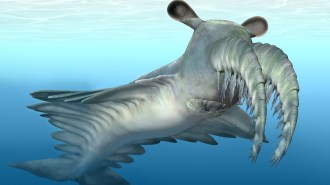 Paleontology
PaleontologyThis ancient, Lovecraftian apex predator chased and pierced soft prey
Half a billion years ago, Anomalocaris canadensis probably used its bizarre headgear to reach out and snag soft prey with its spiky clutches.
By Nikk Ogasa -
 Chemistry
ChemistryTear-resistant rubbery materials could pave the way for tougher tires
Adding easy-to-break molecular connectors surprisingly makes materials harder to tear and could one day reduce microplastic pollution from car tires.
By Skyler Ware -
 Physics
PhysicsElectrons are extremely round, a new measurement confirms
The near-perfect roundness deepens the mystery behind how the universe came to be filled with matter as opposed to antimatter.
-
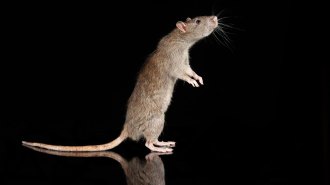 Life
LifeRats sense the wind with antennae-like whiskers above their eyes
Long, thin whiskers above rats’ eyes appear to sense faint air movement, which may be helpful for detecting moving threats in dark, narrow corridors.
By Jake Buehler -
 Science & Society
Science & SocietyCalifornia’s long-standing affirmative action ban hints at what’s to come
Alternative race-neutral polices to affirmative action have fallen short in encouraging diversity in California schools, research shows.
By Sujata Gupta -
 Animals
AnimalsThese researchers are reimagining animal behavior through a feminist lens
Ambika Kamath and Melina Packer are working to overturn biased, outdated views in biology.